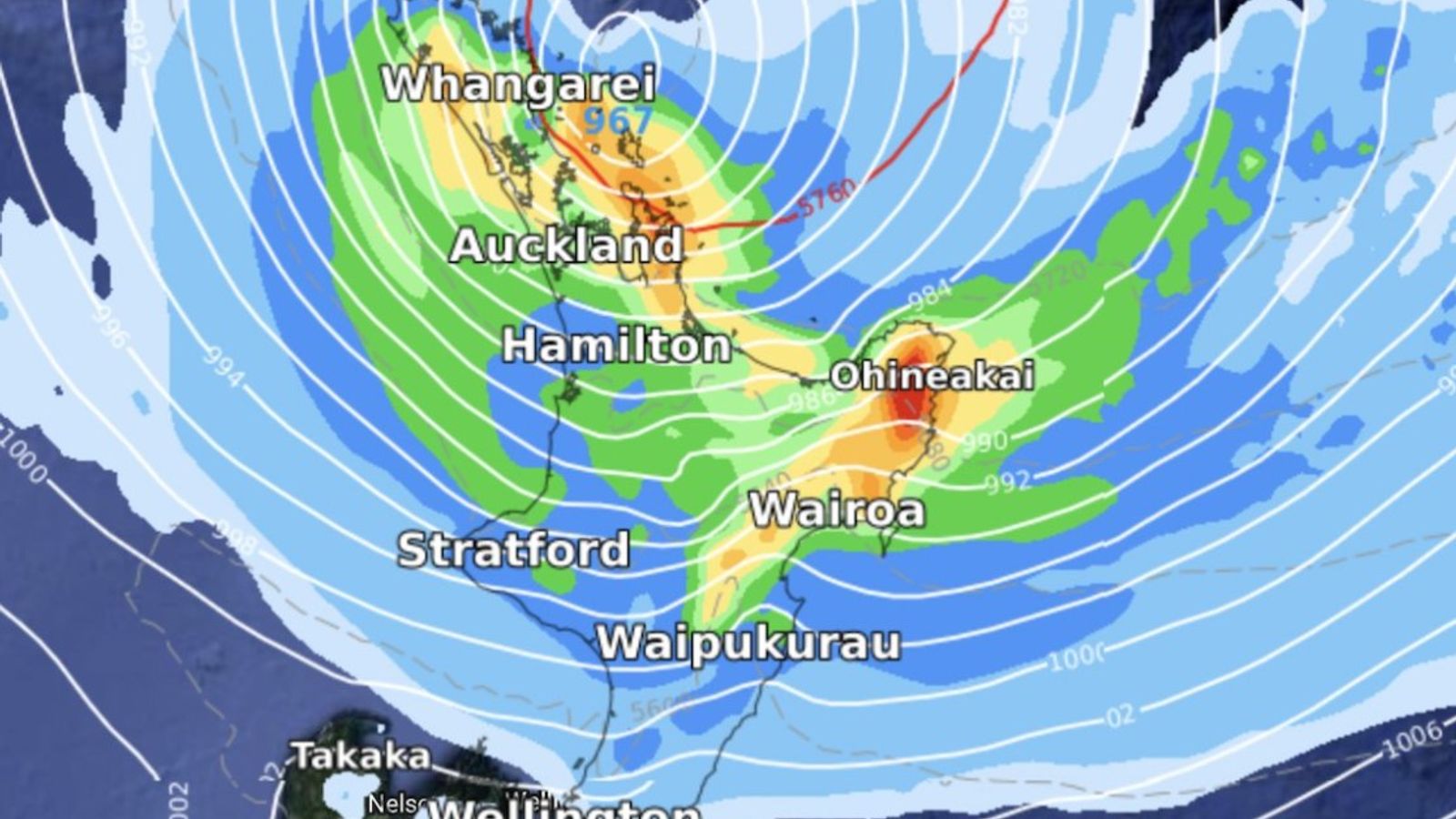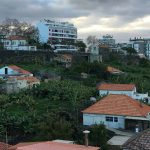Dozens of flights to and from New Zealand have been cancelled as the country braces for its second severe storm in a matter of weeks.
Cyclone Gabrielle has already hit the northern part of New Zealand with winds of more than 80mph and 10 inches of rain expected in Auckland.
Thousands of homes have already lost power with some roads closed in northern New Zealand.
While the full impact of the storm was expected to hit on Sunday evening and Monday, weather experts have warned that New Zealanders could still be experiencing poor conditions until Tuesday.
Forecaster MetService said it was expecting a “widespread and significant” weather event with heavy rain, strong winds and large waves.
Auckland Emergency Management said it was working to get 26 emergency shelters up and running in the city in time for the cyclone’s arrival.
The country’s national carrier cancelled all domestic flights to and from the capital Auckland as well as several international flights.
Cyclone Gabrielle: ‘The most serious storm to hit New Zealand this century’ closes in
Where you should head to survive an apocalyptic nuclear winter, according to scientists
New Zealand weather: Four dead after record rainfall causes flooding and landslides
It also cancelled domestic flights to and from the cities of Hamilton, Taupo and Tauranga.
New Zealand’s prime minister Chris Hipkins said: “Please do take this seriously, we do expect severe weather is on the way.
“So please make sure that you’re prepared. Make sure that you’ve got preparations in place for either if you have to stay put for a period of time, or if you have to evacuate.”
Cyclone Gabrielle comes just two weeks after Auckland experienced the wettest day ever recorded in the city.
Read more:
The weather records broken in 2022
Climate change is making hurricanes more frequent and severe, scientists say
Floodwaters that rose rapidly killed four people, destroyed dozens of homes and caused widespread destruction.
The cyclone was earlier downgraded as Australia’s Norfolk Island escaped the worst winds.
Authorities on the island said its 2,000 residents, some descended from British sailors who mutinied on the HMS Bounty in the 18th century, had been “extremely fortunate” to avoid the worst of the cyclone.






















